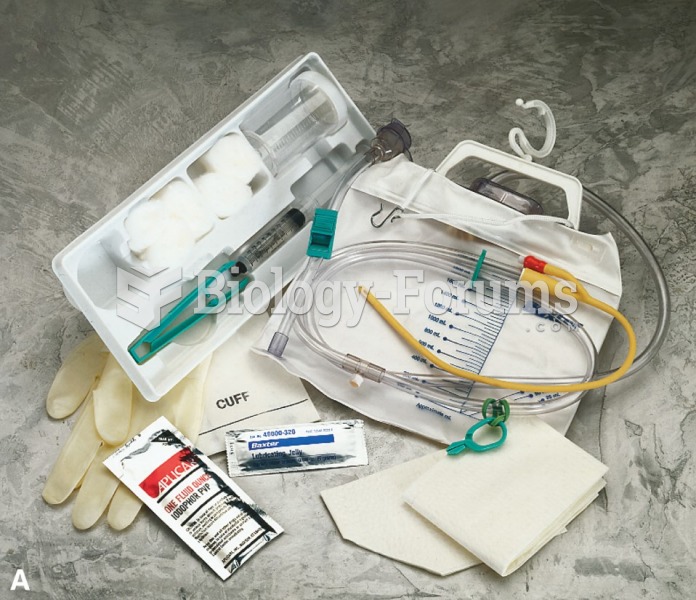This topic contains a solution. Click here to go to the answer
|
|
|
Did you know?
Symptoms of kidney problems include a loss of appetite, back pain (which may be sudden and intense), chills, abdominal pain, fluid retention, nausea, the urge to urinate, vomiting, and fever.
Did you know?
Adult head lice are gray, about ? inch long, and often have a tiny dot on their backs. A female can lay between 50 and 150 eggs within the several weeks that she is alive. They feed on human blood.
Did you know?
The FDA recognizes 118 routes of administration.
Did you know?
The horizontal fraction bar was introduced by the Arabs.
Did you know?
On average, someone in the United States has a stroke about every 40 seconds. This is about 795,000 people per year.
 Urinary catheterization. The procedure involves the insertion of a flexible tube, or catheter, throu
Urinary catheterization. The procedure involves the insertion of a flexible tube, or catheter, throu
 Prolapsed uterus. (a) A prolapse is the abnormal drop of the uterus into the vagina, representing th
Prolapsed uterus. (a) A prolapse is the abnormal drop of the uterus into the vagina, representing th





